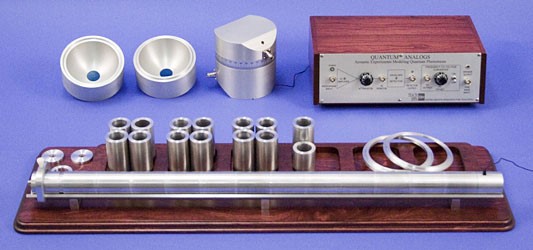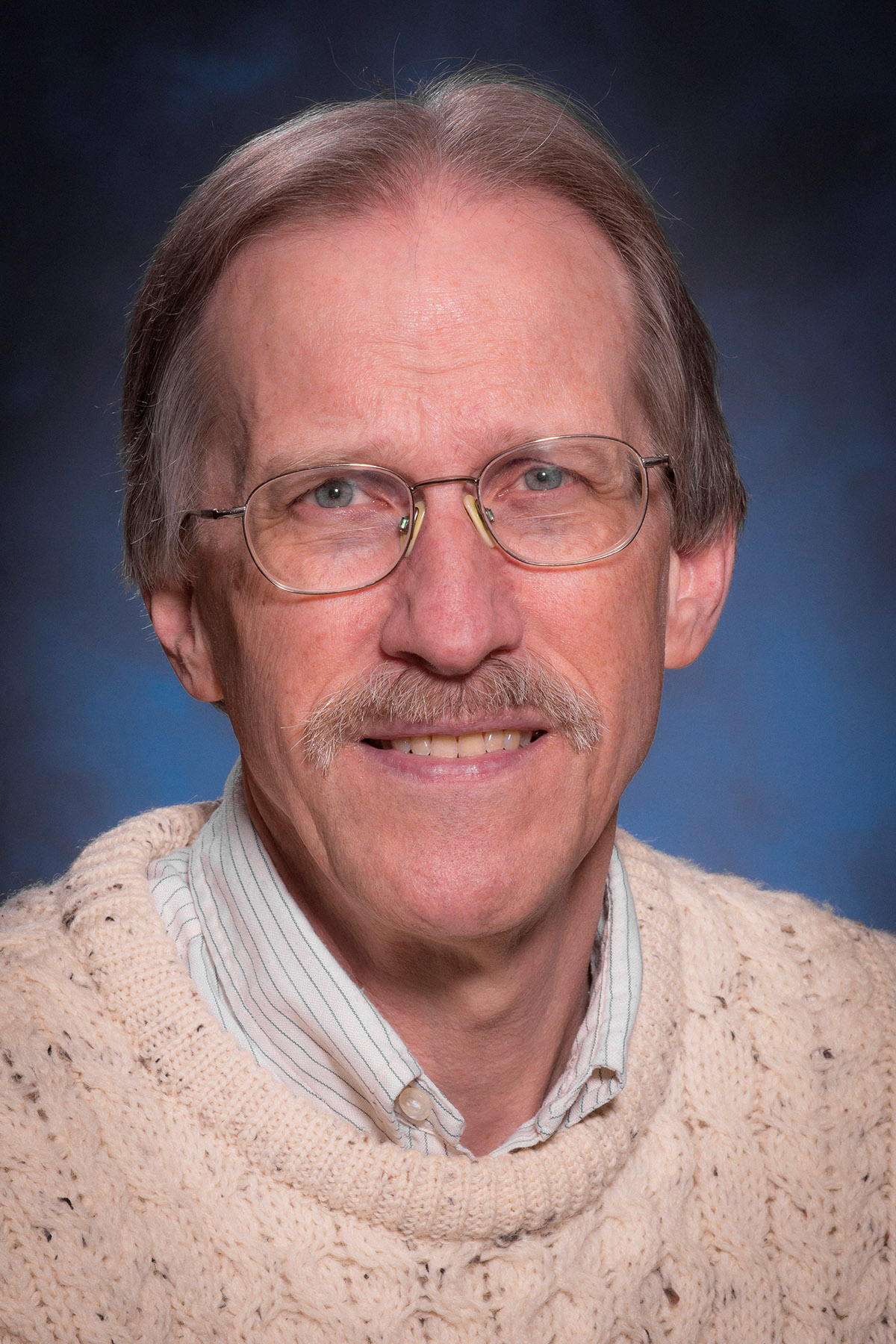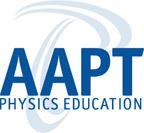- Home
- What We Do
- Laboratory Immersions
- Immersions 2021
- Imm2021Buffalo_QuantumAnalogs
Quantum Analogs
Buffalo State College, 12-14 July 2021
(One set-up)
Instructors teaching the fundamentals of Schrödinger wave mechanics to undergraduates face the challenge of trying to convey intuition about the solutions of partial differential equations. Since purely-mathematical techniques for solving such equations are highly formal, it is useful to study more accessible (classical) physical phenomena that are described by similar differential equations. Then any intuition gained in hands-on study of the classical phenomenon can teach lessons immediately applicable to the much more abstract quantum-mechanical problem.
Quantum Analogs is the name of a hardware/software package that exploits a mathematical analogy between single-particle Schrödinger wave mechanics (on the quantum side), and the Helmholtz wave equation for sound fields in air within confined structures (on the classical side). So the easily-studied resonant modes of vibration of (audio-frequency) sound waves in air, within quasi-1d or a spherical 3-d structures, can rapidly convey by illustration some valuable intuition about the corresponding problems in 1-d or 3-d wave mechanics. For example, in spherically-symmetric problems, the same ‘spherical harmonics’ Ylm(θ,φ) turn up in both quantum and classical cases.
These experiments are illustrated with audio-frequency sound waves in simple geometries, using the ‘Quantum Analogs’ hardware and software provided by TeachSpin, Inc. The apparatus includes the resonators, equipped with speakers and microphones to excite and to detect the sound waves. It also includes both stand-alone and computer-based ways to scan over frequency to make visible the ‘mode spectra’ of the resonant structures.
[Finally, apart from its connection to quantum mechanics, the spherical resonator illustrates a method for highly-precise measurements of the speed of sound, recently made the more relevant to the post-2019 redefinition of the SI scale of temperature.]
The TeachSpin QA system costs about $4500, and should be supplemented by a computer with sound-card capability. A general-purpose oscilloscope and signal generator are useful for an introduction to the system. Participants in this Immersion need only bring a notebook.

Host and Mentor:

David A. Van Baak (Ph.D., Harvard University, 1979) is Professor of Physics Emeritus of Calvin College, and since 2014 a Staff Scientist at TeachSpin, Inc. His research interests have included r.f. and laser spectroscopy, and metrology and instrumentation in general. During his Calvin College career, Van Baak spent over three decades working with advanced-lab curriculum and apparatus development. He takes special pleasure in building and modelling electro-mechanical systems, especially those amenable to detailed mathematical modelling. Quantum Analogs is not his work, but the invention of Prof. Rene Matzdorf of Uni. Kassel in Germany, who saw the need for a more ‘physical’ way to introduce partial differential equations in the teaching of Schrödinger wave mechanics.
.
David A. Van Baak, TeachSpin, Inc., 2495 Main St. #409, Buffalo, NY 14214
Email Address: dvanbaak@teachspin.com Phone: 716-885-4701
Please note that the Jonathan F. Reichert Foundation has established a grant program to help purchase apparatus used in Laboratory Immersions. Limitations and exclusions apply, but generally speaking the Foundation may support up to 40% of the cost of the required equipment.





